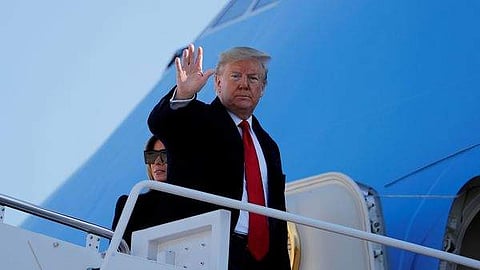

The United States could have saved 36,000 lives only if the social distancing measure was adopted a week earlier instead of March 15, according to new research from Columbia University Mailman School of Public Health scientists.
The impact of coronavirus crisis might have seemed like a distant threat during the first week of March to most of the Americans. However, the study noted that things and the numbers would have been different if the control measures were taken on March 8, The Washington Post reported. The US is the worst-hit country due to coronavirus. According to John Hopkins University data, there are 1,577,287 confirmed cases and 94,702 deaths.
For the research, the scientists compared two hypothetical scenarios in which social distancing measures are reimplemented two to three weeks after being relaxed nationally starting from May 4. When taken the case of a two-week delay, the researchers estimated a daily peak of 35,288 new cases and 3,392 new deaths by July 1. Meanwhile in the case of a three-week delay, they estimate a daily peak of 42,560 new cases and 4,166 new deaths by July 1.
"Efforts raising public awareness of the ongoing high transmissibility and explosive growth potential of COVID-19 are still needed at this critical time," said lead researcher Jeffrey Shaman, Ph.D., professor of environmental health sciences at the Columbia Mailman School of Public Health.
"Our results also indicate that without sufficient broader testing and contact tracing capacity, the long lag between infection acquisition and case confirmation will mask the rebound and exponential growth of COVID-19 until it is well underway," Shaman added.
The study came to a conclusion that after a retrospective analysis, 703,975 confirmed cases (62 per cent) and 35,927 deaths (55 per cent) of reported deaths nationwide up to May 3 would have been avoided if observed control measures had been adopted one week earlier -- on March 8 instead of March 15.
The researchers examined transmissions in metropolitan areas with dense populations and abundant observations -- New York, New Orleans, Los Angeles, Chicago, Boston, Miami and others.
Rejecting the study's findings, White House spokesperson Judd Deere, in a statement to The Post, said that federal officials made the best decisions possible with the information available at the time.
"What would have saved lives is if China had been transparent and the World Health Organisation had fulfilled its mission," Deere said.
"What did save American lives is the bold leadership of President Trump," Deere added.
The president imposed "early travel restrictions when we had no idea the true level of asymptotic spread," and he organised "the greatest mobilisation of the private sector since World War II to deliver critical supplies" and expand testing, the spokesperson further said.
On March 13, Trump banned Travel from Europe and asked the people of the country to "take it easy" and "relax" two days later. But as cases spiralled, it was not until the end of the month that the US President first used the Defense Production Act to compel factories to produce ventilators.
